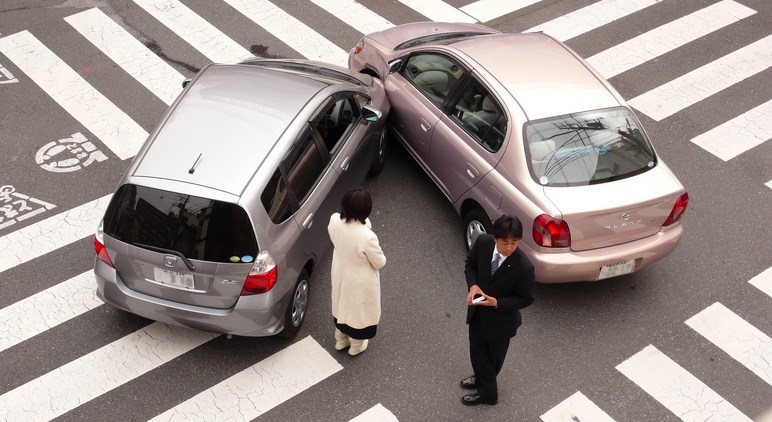My Friend Crashed My Car — Am I Liable?

Many of us would happily loan our car to a friend or relative in a time of need, but what happens if the person borrowing your car gets in an accident? With over 28,000 car crashes occurring in the U.S. each day, it’s entirely possible that your car could be involved in an accident even if you’re not behind the wheel.
Before you hand over the keys, make sure you know exactly how you and your insurance will be affected if an accident occurs.
Car Insurance or Driver Insurance?
Car insurance covers the car itself, not the driver. Regardless of who is driving the car, the owner’s insurance policy covers the damages and costs incurred in an accident.
For example, let’s say you loan your car to your neighbor and she rear-ends another car. As the owner of the car that caused the accident, you are responsible for filing the claim with your insurance company and paying the deductible. Your insurance will cover the repair and medical costs of the other vehicle and its occupants.
If your neighbor borrows your car and is in an accident that is not her fault, your insurance is not affected. Instead of filing a claim with your insurance, you would file a claim with the at-fault driver’s insurance. Their policy covers all costs, including your deductible.
Read more: Does Car Insurance Cover the Driver or the Car?
Car Insurance Basics
Knowing the different types of auto insurance coverage can help you better understand what to expect if your car is in an accident and you’re not the driver.
Liability
There are two types of liability insurance: property and bodily injury. This coverage pays for the property damage and medical expenses of the other party if you or the driver of your car are responsible for an accident. For example, if your car hits a mailbox or backs into another car, property damage liability would cover the costs to replace or repair it. All states (except New Hampshire) require a minimum amount of liability insurance.
When a driver who is not listed on your policy causes an accident and the damages exceed your liability coverage, the driver’s insurance will kick in and pick up the remaining costs. If they don’t have insurance, then you are responsible for all damages and medical expenses.
Collision
This optional form of coverage pays for the damages to your car if you or the driver causes an accident. Without collision coverage, you will have to foot the bill for your own car’s repairs.
Comprehensive
Comprehensive covers damage to your vehicle that is not caused by a car accident, such as hail damage, vandalism, or theft. Comprehensive coverage is also optional.
Uninsured/underinsured motorist
This coverage pays for damages to your car caused by a driver who has no insurance or inadequate insurance. In some states, this coverage is mandatory.
Before Loaning Your Car
Take these precautions before loaning your car to help minimize complications in the event of an accident.
- Contact your insurance company and find out whether or not your policy has conditions or restrictions for other drivers.
- Never lend your car to someone you don’t know or who has a poor driving record.
- Verify that the person borrowing your car has insurance and a valid driver’s license.
- Make sure your insurance card and registration are in the glove box of your car.
Read more: Does Car Insurance Cover Other Drivers?
Is your insurance adequate?
The costs from car accidents can add up quickly, especially if they include expensive repairs or serious injuries.
If you’re unsure about whether or not your car insurance coverage is adequate, contact the professionals at Obrella. Our team of industry experts will provide personal recommendations to ensure you have the best coverage for your unique needs.

Free Insurance Comparison
Enter your zip code below to view companies that have cheap insurance rates.
Secured with SHA-256 Encryption


